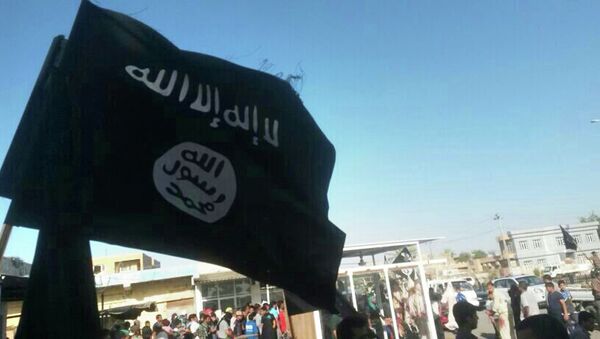WASHINGTON (Sputnik) — The assessments followed testimony by senior US military officials that the United States has available only four or five Syrian opposition volunteers to fight ISIL instead of the planned 5,400 who were supposed to be operational by the end of 2015. The US military had trained about 60 fighters, but lost contact with most, save for the four or five left.
"Russia has the invitation of the Assad government to operate inside Syria, and the United States has a similar invite from [Prime Minister Haider] Abadi in Iraq," Executive Intelligence Review editor Jeff Steinberg said.
Therefore, the two superpowers could easily draw up complementary zones for air strikes and support for military operations, with the United States focusing more resources on Iraq, and Russia helping in Syria, the analyst continued.
"A logical agreement would be a pincer assault on the Islamic State from both sides," Steinberg explained. "It means more than ‘de-confliction’ of forces, but more of an actual coordination."
Russian President Vladimir Putin has made clear he would work with US President Barack Obama in fighting the Islamic State, Steinberg pointed out.
"Putin is pressing Obama for a face-to-face meeting in New York City on the sidelines of the UN General Assembly, and this is something that could be positive regarding Syria-Iraq," Steinberg said.
"Turkey, Saudi Arabia, Qatar and Kuwait still want a Salafist regime in Damascus and this is not in any US or Russian interests," he said. "Shifting alliances are possible under these fragile and fast-changing circumstances."
The United States needs Russian help to save it from an embarrassing failure in Syria following this week’s revelations that the US is left with only four or five trained individual Syrian fighters instead of the planned 5,400, Ivan Eland of the Independent Institute said.
"The training program is, as one member of Congress put it, ‘a joke’," Eland observed. "The program is not worth funding, sequestration or no sequestration. It should be abolished."
Eland argued that the United States should avoid any further meddling in the Syrian conflict.
"When your enemies are fighting each other, as they are in the civil war, the United States should have wisely stayed on the sidelines," he said. "With only four or five US-trained fighters fighting the Islamic State, the obvious question is where did the others go?"
"The effects of this program should not be overstated," he said. "The numbers the United States has trained have been very small, because most opposition fighters don't want to fight the Islamic State."
US officials admitted this week that the American military has lost track of almost all the volunteers it trained and equipped to fight ISIL in Syria and does not know where they are or what they are doing.



